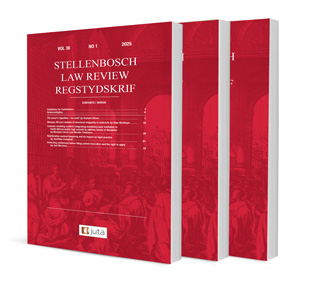
Bwanya, EB and contexts of structural inequality in contracts
Author: Elsje Bonthuys
ISSN: 1996-2193
Affiliations: BA, LLB, LLM (Stell) PhD (Cantab), Professor, University of the Witwatersrand
Source: Stellenbosch Law Review, Volume 36 Issue 1, 2025, p. 16-38
https://doi.org/10.47348/SLR/2025/i1a2
Abstract
Two recent Constitutional Court cases have modified the reasoning about contractual autonomy expressed in the court’s earlier judgment in Volks v Robinson. In Volks, the court held that people who choose not to marry cannot expect to benefit from the rights afforded to spouses – generally called the choice argument. This article examines the effects of these judgments for party autonomy in contracts in general. Bwanya v The Master acknowledges that structural forms of inequality, like gender inequality, can impede parties’ abilities to freely contract, but it is ambiguous on the question whether a right to support will be afforded to unmarried partners on the basis of contract or a familial relationship, or both. This creates uncertainty about the basis of future claims for rights to support in such relationships and opens the door for contractual defences to future claims. EB v ER considered the role of the choice argument in contracts which had turned out to be detrimental to one party. It confirmed the central role of pacta sunt servanda in public policy on contracts, but decided the matter on the basis of the unfair discrimination test in Harksen v Lane. Together, the cases create a chink in the armour of pacta sunt servanda and the choice argument for broader reconsideration of autonomy and fairness in contract law.